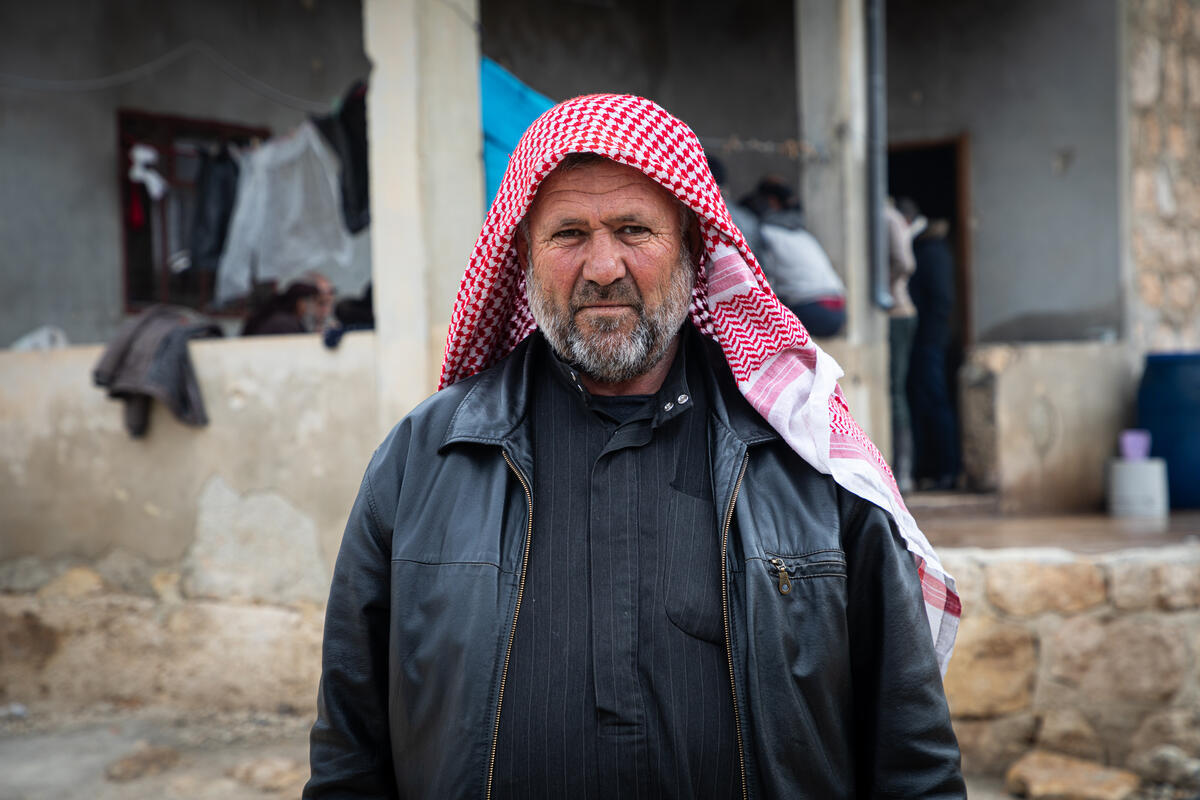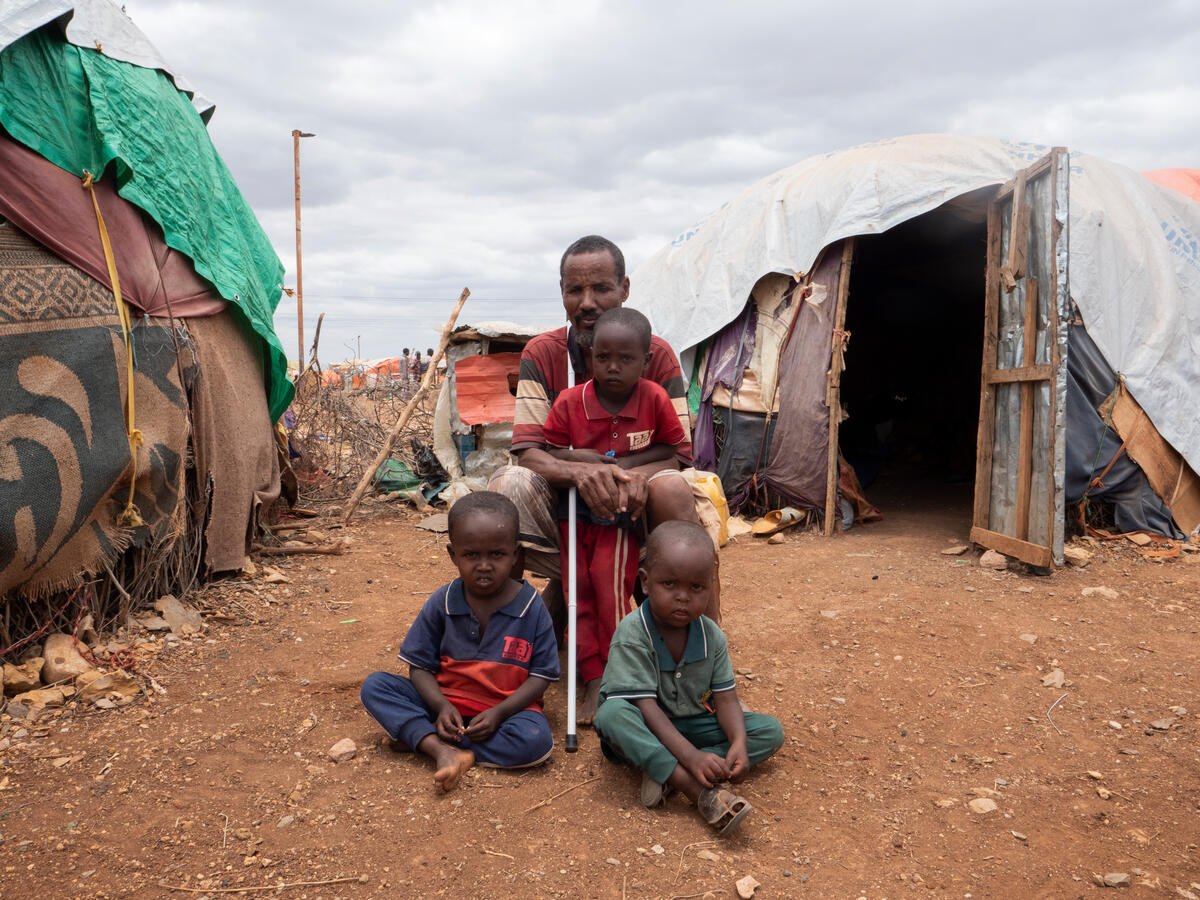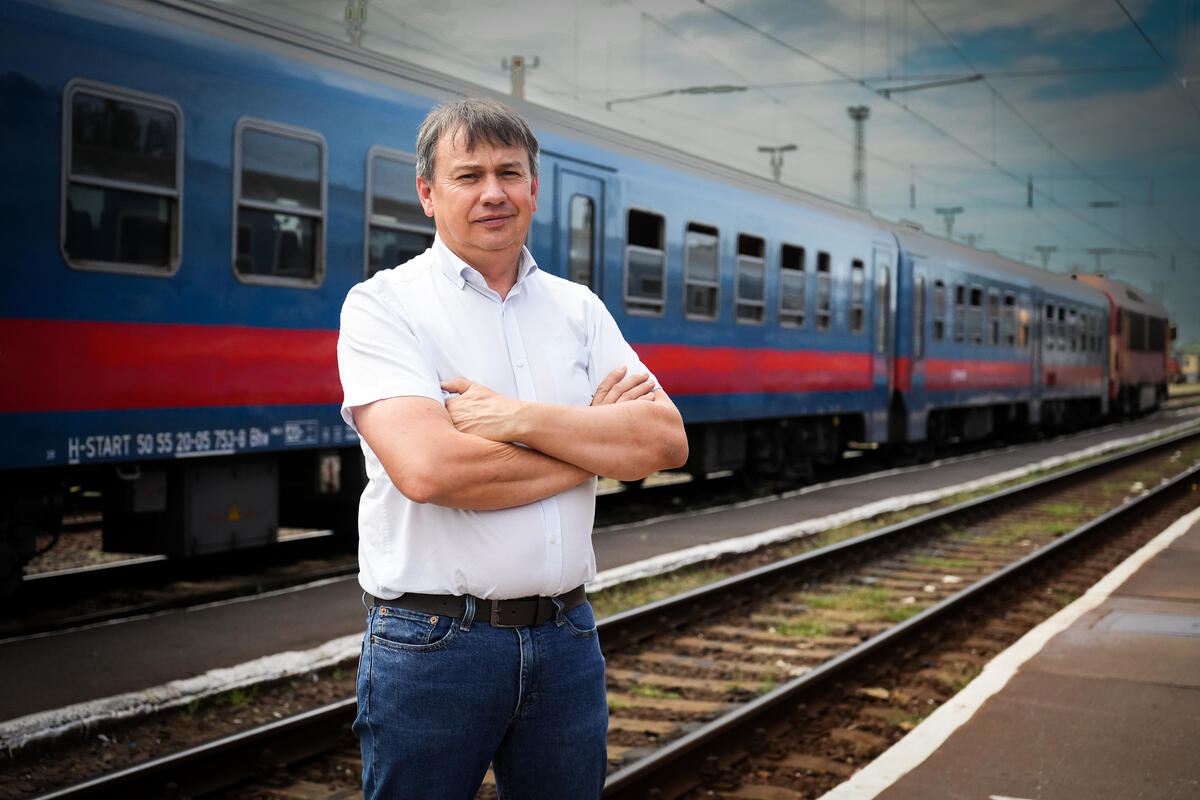Vulnerable Venezuelans find help in Colombia

Vulnerable Venezuelans find help in Colombia
Yuliany Ayala pondered her family’s future as she nursed her nine-day-old son Andry Jesús from the corner of a room lined with bunk beds in a shelter for the most vulnerable of Venezuelan refugees and migrants arriving daily in the town.
“It was never our plan to leave, but here we are,” said the 22-year-old Venezuelan, who arrived a year ago in this border town in Colombia’s northeastern desert region of La Guajira with her husband Adrián Vega and their four-year-old son Diose.
After Ayala gave birth to her second son, the family was given temporary shelter at the 60-bed Centre for the Attention to Migrants and Refugees, run by the Catholic Church’s Pastoral Social in the center of Maicao, once a bustling trade centre.
“It was never our plan to leave, but here we are."
The shelter has become a lifeline for many, and is one example of the kinds of responses that governments, NGOs and others throughout the region have put in place to meet the basic needs of Venezuelans who have left their homeland.
As it is doing in Maicao, UNHCR, the UN Refugee Agency, is supporting partners and local governments across Colombia and throughout the region to address the growing needs of Venezuelans on the move. Projects range from outfitting food kitchens and temporary shelters to bolstering the resources of hospitals and supporting childcare facilities.
UNHCR is also helping identify those individuals within the larger movement of Venezuelans who are in need of international protection and making sure they understand their options to obtain legal status in countries where they are.
“Even though most refugees and migrants have urgent humanitarian needs such as protection, food and shelter, being able to have a regular status in Colombia is a priority,” said Jozef Merkx, UNHCR representative for Colombia, a country of some 45 million, which is hosting an estimated one million Venezuelans.
“Those who have no regular status in Colombia are most vulnerable, and might become victims of labour and sexual exploitation,” he said, adding that have legal status grants them many of the same protections and benefits as citizens.
An estimated 1.9 million Venezuelans have been compelled to leave their country since 2015, a significant number of whom are in need of international protection. Some, like Ayala and Vega, say they have no immediate plans to go back to Venezuela, which is facing a challenging socio-economic, human rights and political situation.
At the shelter in Maicao, the limited capacity coupled with increasing numbers of Venezuelans arriving in Colombia, meant that Ayala and her family would soon have to return to sleeping in a wall-less hut of dried palm fronds on some car cushions they pulled from a rubbish heap when they first arrived.
Life for Ayala, her husband Vega and their children is hard. The couple, who left their home in the Venezuelan city of Cabimas, peddle fruit and coffee on the streets of this town of 270,000. “We don’t earn much, but it’s enough,” said Ayala.
The growing numbers of Venezuelans leaving their country has led to a surge in the demand for shelter in Maicao during the first eight months of the year, according to Jheimmy Naizzir, the shelter coordinator. From January to August the centre housed 3,008 people, compared to 1,327 in all of 2017. With support from UNHCR, the UN Refugee Agency, the centre is expanding its bed capacity and adding a playroom for children, as well as improving its daily meal distribution.
After staying the maximum three nights in the shelter, Liliana Paz, 55, and her 10-year-old grandson Gleiber have slept for the past three months on flattened cardboard boxes in a parking lot where they pay the equivalent of US$1 a night. But they are regulars at the center for breakfast and lunch.
“I was so thin when we got here that a bar of soap would fit right here” she said showing her bony left clavicle,” said Paz. She is grateful for the meals and says both she and the boy, who has epilepsy, have gained weight. The boy is now getting access to the medical treatment he needs.

What Sarah Ramírez*, 33, needed was to find a place to be safe from threats and harassment. Ramirez has applied for refugee status in Colombia, which grants her protection from being returned to her country. “Making the decision to leave wasn’t easy,” said Ramírez, caressing the family pet, a rabbit named Kestrell that crossed the border with them. “For us it’s impossible to return,” she said.
This Sunday, the UN High Commissioner for Refugees, Filippo Grandi, begins an eight-day mission to Colombia, Argentina, Peru and Ecuador to find out first-hand the needs of Venezuelan refugees and migrants, and their hosts in the region.
More than 346,000 Venezuelans have requested refugee status in countries throughout Latin America as well as in Europe and the United States since 2014. Twice that many have been granted other forms of stay, which allow Venezuelans to reside in other countries, with access to work and social services.
In Colombia, this took the form of a nationwide census of Venezuelans living in the country. The more than 442,000 Venezuelans registered in the process, supported by UNHCR and IOM, are now in the process of receiving a special permit that allows them to work legally and access basic services for two years.
“I felt like people were taking advantage of my needs.”
For Vanesa Vargas it was a life changer. A hair stylist by trade, before getting her special permit, she could not find steady work. “I was being exploited, being asked to work long hours for less than the minimum wage,” she said. Now she is making double what she used to and has full benefits. She supplements that income by selling water and candy on the Colombia side of the bridge border crossing between Ureña, Venezuela and Cúcuta, Colombia.
But many Venezuelans arriving in Colombia choose to move on from the border cities as opportunities dwindle and incidents of xenophobia rise. At the border crossings bus lines and tour companies offer direct tickets to Colombian cities such as Bogota, Medellin and Cali, or beyond to Ecuador Peru and Chile. Many refugees and migrants, however, cannot afford the price of the bus ticket and choose to embark on a grueling trek on foot.
Andreína Escalona 34, spent five months scraping by in the border city of Cúcuta working six to nine hour shifts at odd jobs for which she was paid 6,000 Colombian pesos (about US$2) a day. “I felt like people were taking advantage of my needs,” she said. What little she was able to save, she sent to help support her six children in Barlovento, Venezuela, the youngest of which is not yet one year old.
On a recent uncommonly cloudy day, she and her partner Jeancarlos Cisneros, 40, set out on foot to walk the 604 kilometers on the two-lane road that winds its way from Cúcuta, up through a high Andean mountain pass to Bogotá. Several hundred Venezuelans take the risky road every day primed with food and first aid kits from the Colombian Red Cross. Escalona knows it won’t be an easy hike.
“But for my children I will walk anywhere,” said Escalona.
* Name changed for protection reasons












